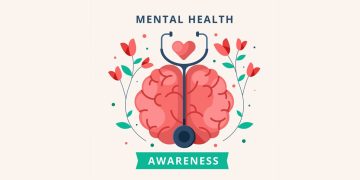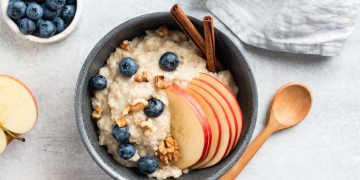Heart-Healthy Recipes: Nourishing Your Body and Protecting Your Heart with Delicious Dishes
When it comes to maintaining a healthy heart, your diet plays a crucial role. By incorporating heart-healthy recipes into your meal plan, you can nourish your body with essential nutrients and protect your heart from various cardiovascular diseases. In this article, we’ll explore a variety of delicious dishes that not only taste great but also support heart health.
Why is Heart Health Important?
Heart disease is the leading cause of death worldwide, making it essential to prioritize heart health in your daily life. By adopting a heart-healthy diet rich in fruits, vegetables, whole grains, lean proteins, and healthy fats, you can reduce your risk of developing heart-related conditions such as high blood pressure, high cholesterol, and heart attacks.
Key Ingredients for Heart-Healthy Recipes
When preparing heart-healthy recipes, it’s important to choose ingredients that support cardiovascular health. Some key ingredients to include in your dishes are:
- Omega-3 fatty acids: Found in fatty fish such as salmon, mackerel, and sardines, omega-3 fatty acids help reduce inflammation and lower the risk of heart disease.
- Fiber: Fiber-rich foods like fruits, vegetables, whole grains, nuts, and seeds can help lower cholesterol levels and promote heart health.
- Antioxidants: Foods rich in antioxidants, such as berries, dark chocolate, and leafy greens, can protect your heart from damage caused by free radicals.
- Healthy fats: Incorporating sources of healthy fats like avocado, olive oil, and nuts into your diet can help improve cholesterol levels and reduce the risk of heart disease.
Delicious Heart-Healthy Recipes
1. Baked Salmon with Lemon and Herbs
This flavorful and nutritious dish is rich in omega-3 fatty acids and protein, making it an excellent choice for heart health.
Ingredients:
- 4 salmon fillets
- 1 lemon, sliced
- Fresh herbs (such as dill, parsley, or thyme)
- Salt and pepper to taste
Instructions:
- Preheat the oven to 375°F.
- Place the salmon fillets on a baking sheet lined with parchment paper.
- Season the salmon with salt and pepper, then top with lemon slices and fresh herbs.
- Bake for 15-20 minutes, or until the salmon is cooked through.
- Serve with your favorite side dish and enjoy!
2. Quinoa and Black Bean Salad
This refreshing and satisfying salad is packed with fiber, protein, and antioxidants, making it a heart-healthy choice for lunch or dinner.
Ingredients:
- 1 cup quinoa, cooked
- 1 can black beans, rinsed and drained
- 1 red bell pepper, diced
- 1/2 red onion, diced
- 1/4 cup fresh cilantro, chopped
- Juice of 1 lime
- Salt and pepper to taste
Instructions:
- In a large bowl, combine the cooked quinoa, black beans, red bell pepper, red onion, and cilantro.
- Drizzle the lime juice over the salad and season with salt and pepper.
- Toss everything together until well combined.
- Chill in the refrigerator for at least 30 minutes before serving.
- Enjoy this nutritious and delicious salad on its own or as a side dish.
Additional Tips for Heart-Healthy Eating
In addition to trying out these delicious heart-healthy recipes, here are some additional tips to help you maintain a healthy heart:
- Limit your intake of saturated and trans fats, which can raise cholesterol levels and increase the risk of heart disease.
- Reduce your consumption of processed foods and sugary beverages, which can contribute to high blood pressure and inflammation.
- Stay hydrated by drinking plenty of water throughout the day, as dehydration can strain your heart and affect your overall health.
- Engage in regular physical activity to strengthen your heart muscle, improve circulation, and maintain a healthy weight.
- Manage stress through relaxation techniques, mindfulness practices, and adequate sleep to protect your heart from the negative effects of chronic stress.
Conclusion
By incorporating heart-healthy recipes into your meal plan and following these additional tips for heart-healthy eating, you can nourish your body, protect your heart, and improve your overall well-being. Make sure to prioritize nutrient-dense foods, maintain a balanced diet, and stay active to support your heart health for years to come.
Remember, your heart is a vital organ that deserves the best care possible. Start making small changes to your diet today to reap the long-term benefits of a heart-healthy lifestyle. Your heart will thank you!












































